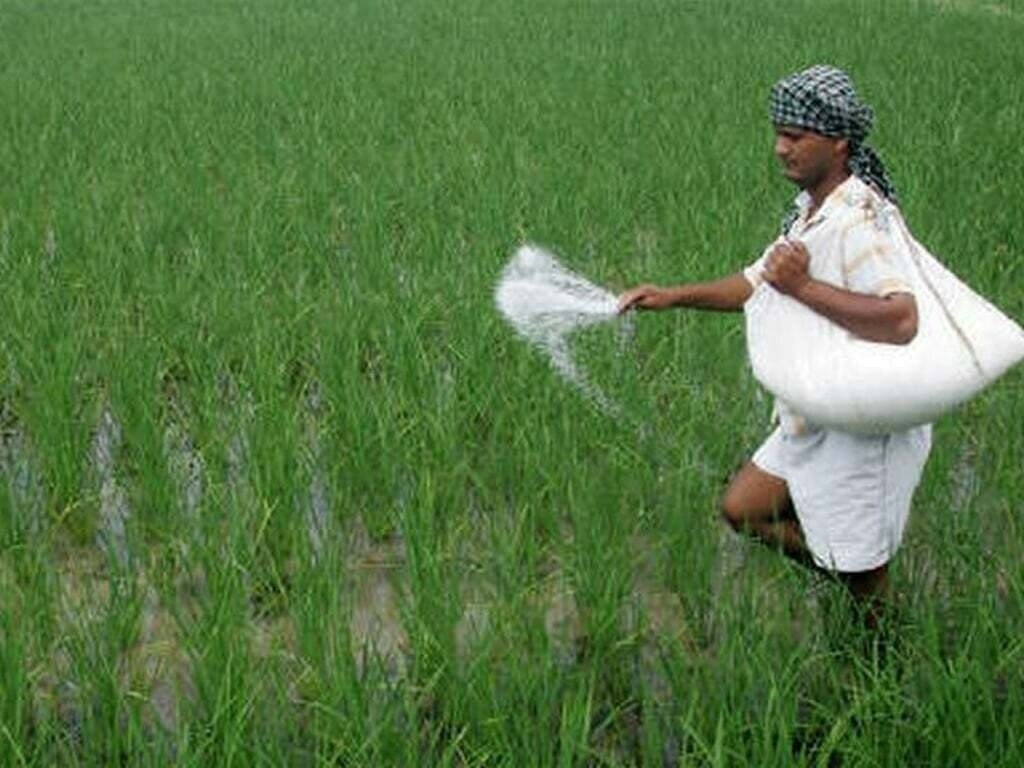The Kissan Package-2024, a vital initiative to support Pakistan’s agricultural sector, was at the center of discussions during an inter-ministerial meeting presided over by the Minister for National Food Security and Research, Tariq Bashir Cheema.
Attendees included Minister for Industries and Production, Syed Murtaza Mehmood, and other key stakeholders such as the Special Assistant to the Prime Minister on Youth Affairs, Shiza Fatima Khawaja, and representatives from various ministries and the State Bank of Pakistan (SBP).
According to official reports, the average price of DAP as of March 30, 2023, had surged to Rs. 10,431 per bag, while the average urea price stood at Rs. 2,799 per bag, surpassing the fixed rates.
This price hike contributed to a reduction in fertilizer offtake, with DAP consumption falling by 4.4% and urea by 0.6% during January-March 2023 compared to the same period last year.
Fertilizer Management at the District Level
During discussions on the Kissan Package-2024, it was revealed that credit disbursement remains unequal across farm sizes, provinces, and cities.
The Economist Consultant from the Ministry of National Food Security and Research emphasized the need for a more balanced approach to agricultural loans to ensure that small-scale farmers receive adequate financial support.
The State Bank of Pakistan shared updates on efforts to enhance agricultural loans, proposing an increase from Rs. 1.419 billion to Rs. 1.819 billion. However, the absence of a comprehensive farmer database has posed challenges.
The SBP clarified that while it cannot lead in creating the database due to its role as a commercial bank monitor, it is ready to direct banks to lend based on the database once developed by federal and provincial authorities.
The meeting also shed light on efforts to support subsistence farmers in flood-affected areas. As of March 24, 2023, 37 banks and microfinance banks (MFBs) reported waivers of markup totaling Rs. 3.076 billion.
Under the scheme, 50% of the waived amount is to be borne by the government, ensuring much-needed relief for farmers devastated by natural disasters.
To further support flood-affected farmers, an interest-free loan scheme has disbursed Rs. 2.4305 billion to 12,828 borrowers as of March 24, 2023.
Despite this progress, the low number of borrowers highlights the need for more robust outreach and awareness initiatives. The SBP attributed this shortfall to the late announcement of the Kissan Package-2024, which coincided with the Rabi season.
Farm Mechanization
The meeting highlighted significant strides in promoting farm mechanization through the Markup Subsidy for Risk Sharing Scheme. Under this program, the SBP has allocated Rs. 56 billion to 24 banks, including Islamic banks, to facilitate loans for agricultural machinery such as tractors, threshers, and tubewells.
- Strengthening Farmer Databases: Developing a comprehensive database of farmers is critical for equitable credit distribution and effective policy implementation.
- Improving Fertilizer Management: District-level management systems must be overhauled to ensure efficient distribution and minimize price disparities.
- Enhancing Outreach Efforts: Awareness campaigns and timely announcements of schemes can boost participation, especially among small and subsistence farmers.
- Promoting Farm Mechanization: Expanding access to agricultural machinery through subsidized loans can increase productivity and reduce labor dependency.
- Streamlining Coordination: Improved communication and collaboration among ministries, banks, and other stakeholders are vital for seamless execution.


